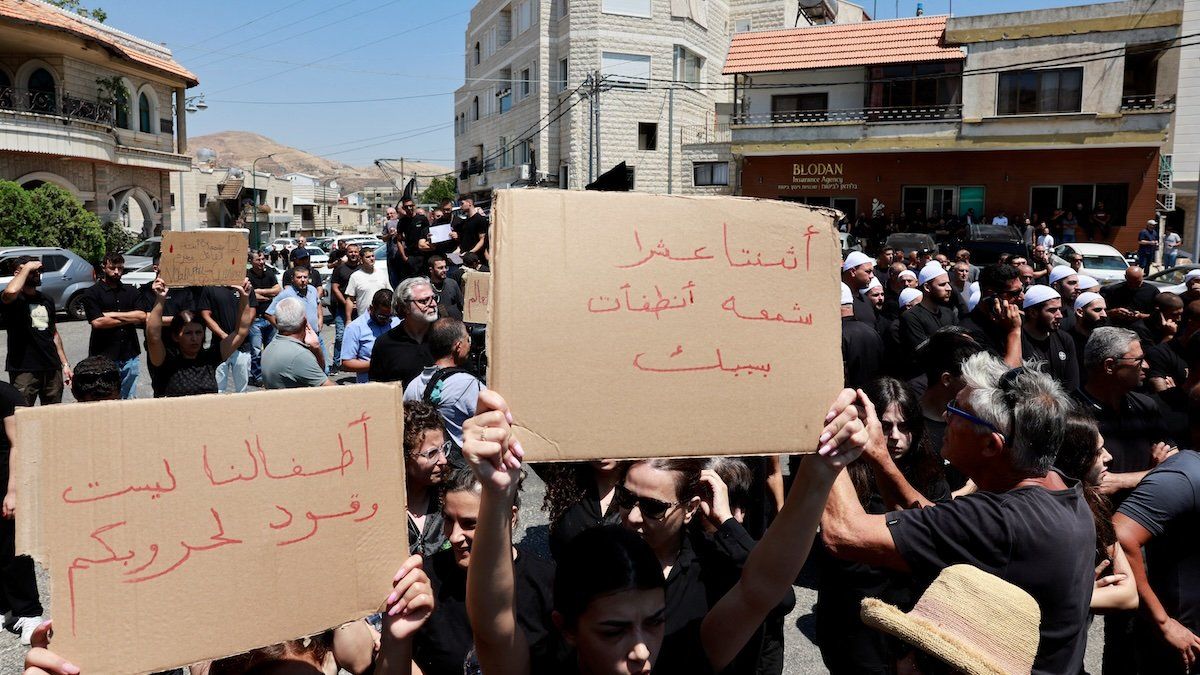Israeli Prime Minister Benjamin Netanyahu on Monday warned there would be a “severe” response to a deadly rocket strike on Saturday in the Israeli-occupied Golan Heights, which the Jewish state and the US have blamed on Hezbollah. The Iran-backed militant group in Lebanon, which has been trading cross-border fire with Israel throughout the Gaza war, denies responsibility.
“The state of Israel will not and cannot overlook this. Our response will come, and it will be severe,” Netanyahu said while in the Golan Heights. Hundreds of locals protested Netanyahu’s visit, with some reportedly accusing him of exploiting the deadly attack for political purposes.
This came after Israel’s security cabinet authorized Netanyahu to decide on the “manner and timing” of a response to the strike. An Israeli drone strike killed two Hezbollah fighters on Monday, but so far there has not been a major retaliatory attack. The US is urging Israel to show restraint.
The escalating tit-for-tat between Israel and Hezbollah in recent months has consistently raised concerns over the possibility of a broader war in the region. Saturday’s strike, which killed young children and teenagers, poured fuel on an already raging fire. But there are signs that a larger conflict can still be avoided.
Gregory Brew, a Eurasia Group analyst, believes Israel’s response will include a military response against Hezbollah that will be more extensive than any actions taken against the militant group since Oct. 7. But it will “be calibrated in such a way as to avoid risks of significant escalation,” Brew adds, and Hezbollah is “also under pressure to avoid escalation.”
And while this strike reignited concerns that Israel might invade Lebanon, a move that could risk a response from Iran, the IDF “doesn’t seem positioned to launch a big offensive, one requiring lots of additional troops and resources,” says Brew.
Trouble on the home front: Far-right protesters stormed two Israeli army bases after military police detained nine soldiers as part of an investigation into abuse at Sde Teiman, a prison camp for Palestinians. They broke into Sde Teiman early Monday as military police arrived and later broke into a base at Beit Lid, where there are military courts and where detained soldiers were being transferred.
The army deployed additional forces to both camps to take back control, and Netanyahu called for calm in the hours after the first attack on Sde Teiman. We’re watching whether these internal clashes continue, and how they impact Israel’s combat posture.
